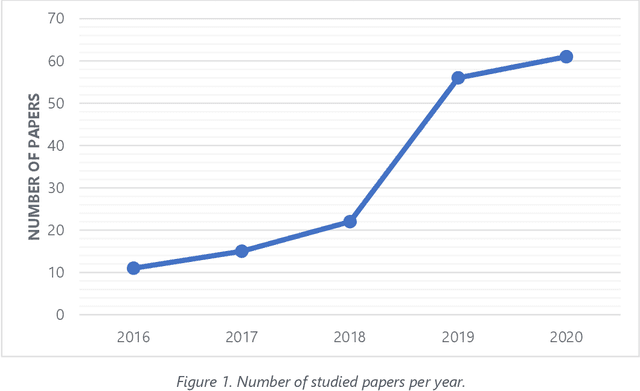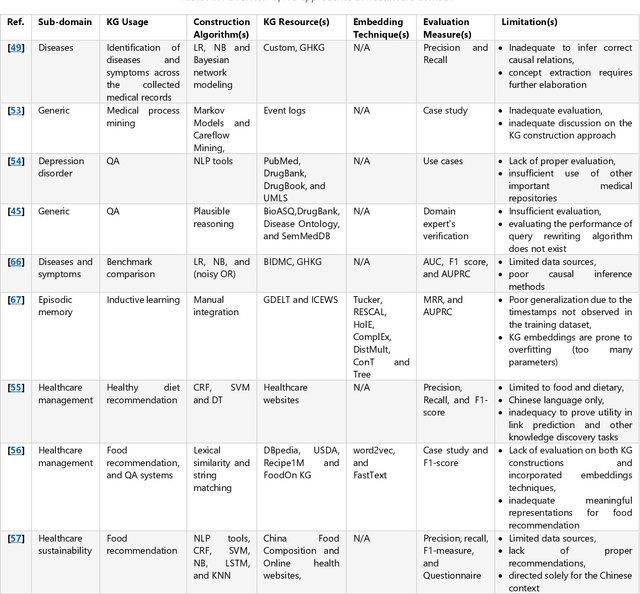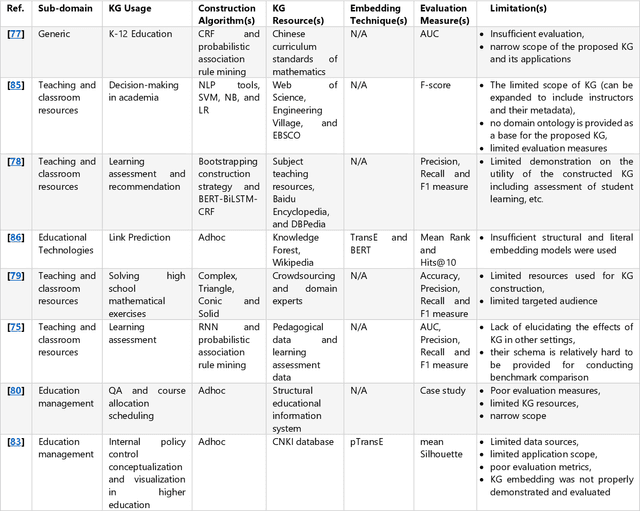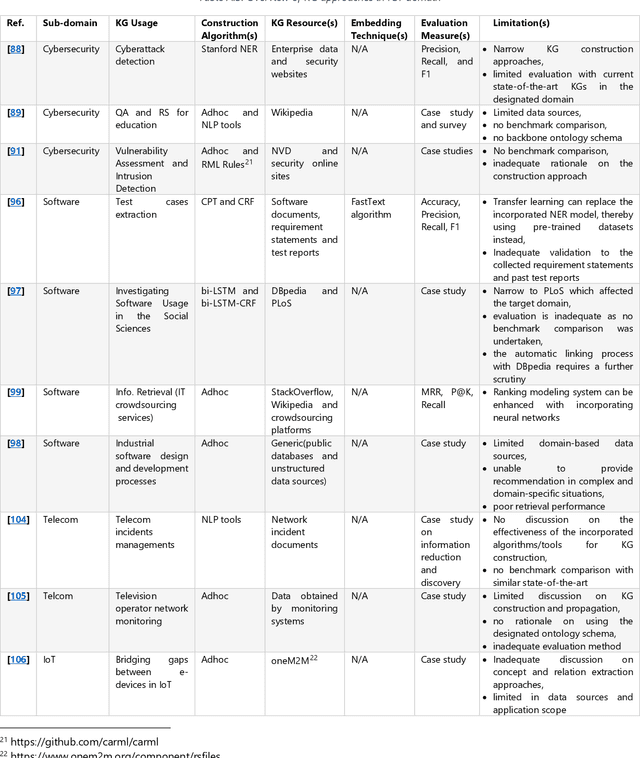Domain-specific Knowledge Graphs: A survey
Paper and Code
Nov 03, 2020



Knowledge Graphs (KGs) have made a qualitative leap and effected a real revolution in knowledge representation. This is leveraged by the underlying structure of the KG which underpins a better comprehension, reasoning and interpreting of knowledge for both human and machine. Therefore, KGs continue to be used as a main driver to tackle a plethora of real-life problems in dissimilar domains. However, there is no consensus on a plausible and definition to domain KG. Further, in conjunction with several limitations and deficiencies, various domain KG construction approaches are far from perfection. This survey is the first to provide an inclusive definition to the notion of domain KG. Also, a comprehensive review of the state-of-the-art approaches drawn from academic works relevant to seven dissimilar domains of knowledge is provided. The scrutiny of the current approaches reveals a correlated array of limitations and deficiencies. The set of improvements made to address the limitations of the current approaches are introduced followed by recommendations and opportunities for future research directions.
 Add to Chrome
Add to Chrome Add to Firefox
Add to Firefox Add to Edge
Add to Edge